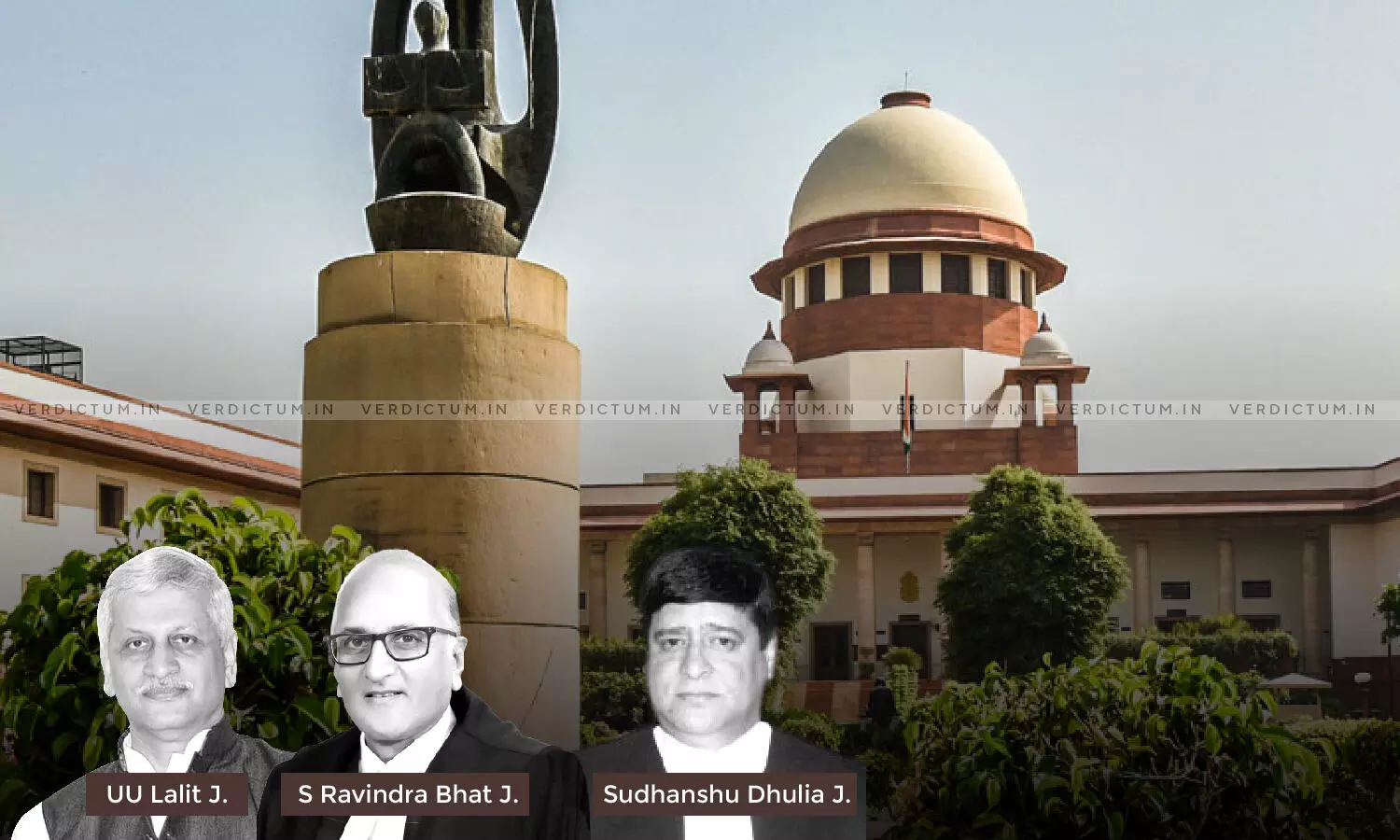
Declaratory/Clarificatory Amendment Usually Meant To Operate From Antecedent Date Or Cover Antecedent Events - SC
 |
|Declaratory/Clarificatory Amendment Usually Meant To Operate From Antecedent Date Or Cover Antecedent Events - SC
The Supreme Court has observed that when an enactment or an amendment is declaratory, or clarificatory, seeking to clarify what was always intended, such amendment is usually meant to operate from an antecedent date, or to cover antecedent events.
The Bench of Justice UU Lalit, Justice S. Ravindra Bhat and Justice Sudhanshu Dhulia expressed thus- "When an enactment or an amendment is declaratory, curative or clarificatory, impelled by a felt need to make clear what was always intended, such amendment is usually meant to operate from an antecedent date, or to cover antecedent events."
The Bench was adjudicating upon the issue pertaining to the legality of appointment of one Dr. MS. Jayakumar as Lecturer by the University of Kerala.
Dr. Jayakumar had completed his graduation in Sociology in the year 1999, acquired his M.Phil. in the year 2000, and Ph.D. in 2006. The regulations prescribing qualifications for appointment promulgated by the University Grants Commission in 2000 prescribed passing the National Eligibility Test (NET) as an essential condition for appointment as Lecturer in any university.
The University Grants Commission Regulations (UGCR) 2000 exempted candidates who had acquired M. Phil or submitted their Ph.D. thesis by December 1993 from taking the NET.
Many amendments were made to the said regulations. In the third amendment the minimum stipulation for appointment of Lecturer was NET. However, candidates who had acquired their Ph.D. in compliance with the UGC Regulations 2009 were exempt from qualifying in the NET.
In 2011, the University of Kerala invited applications for the post of Lecturer. The advertisement spelt out the minimum qualifications required. One mandatory condition was that the candidates should fulfill the eligibility requirement for Lectureship, i.e., the NET. At the same time, the advertisement exempted candidates who had a Ph.D. in the concerned subject from qualifying the NET.
Dr. Jayakumar applied for the post and was ranked in the first position. The respondent Dr. Merlin J.N. was placed in the second position. Aggrieved, she preferred a writ petition before the Kerala High Court.
She challenged the appointment of Dr. Jayakumar, alleging that it contravened the 2009/10 UGCR, i.e., as Dr. Jayakumar had not obtained his Ph.D. in accordance with the 2009 Ph.D. Regulations, he was not qualified to hold the post of Lecturer under the 2009/10 UGCR.
The Division Bench noticed a subsequent judgment of Supreme Court - State of Madhya Pradesh v. Manoj Sharma and the (then) latest amendment to the regulations i.e., 2016 UGCR / fourth amendment which sought to somewhat relieve the rigors of the 2009/10 UGCR however the Division Bench held that the 2016 UGCR was applicable only prospectively, and hence denied the benefit to Dr Jayakumar.
The decision of the Division Bench was challenged before the Apex Court.
Advocate Lakshmeesh S. Kamath appeared for the appellant whereas Advocate Purnima Bhat represented Respondent- Merlin J.N.
The Supreme Court was unpersuaded by the respondent's contentions that it was not the UGC's intention to give retrospective effect to the 2016 UGCR and that the court should not interpret the amendments so as to confer such benefits retrospectively, especially to pending proceedings.
In that context the Court opined thus "In situations such as these, a retrospective restoration of rights which had earlier been taken away, will certainly affect pending proceedings - however, it is the duty of the courts, whether trying original proceedings or hearing an appeal, to take notice of the change in law affecting pending actions and to give effect to the same."
"If on such consideration, it is held by the court that an amendment speaks a language which expressly or by clear intendment takes in even pending matters, the court of first instance as well as the court of appeal must have regard to the intention so expressed, and the court of appeal may give effect to such a law even after the judgment of the court of first instance.", the Bench added further.
The Court held that Jayakumar's appointment was protected by the 2016 UGCR, which applied retrospectively. Therefore, the Court set aside the decision of the Division Bench.
Cause Title- University of Kerala and Ors. etc. v. Merlin J.N. and Anr. etc.
Click here to read/download the Judgment